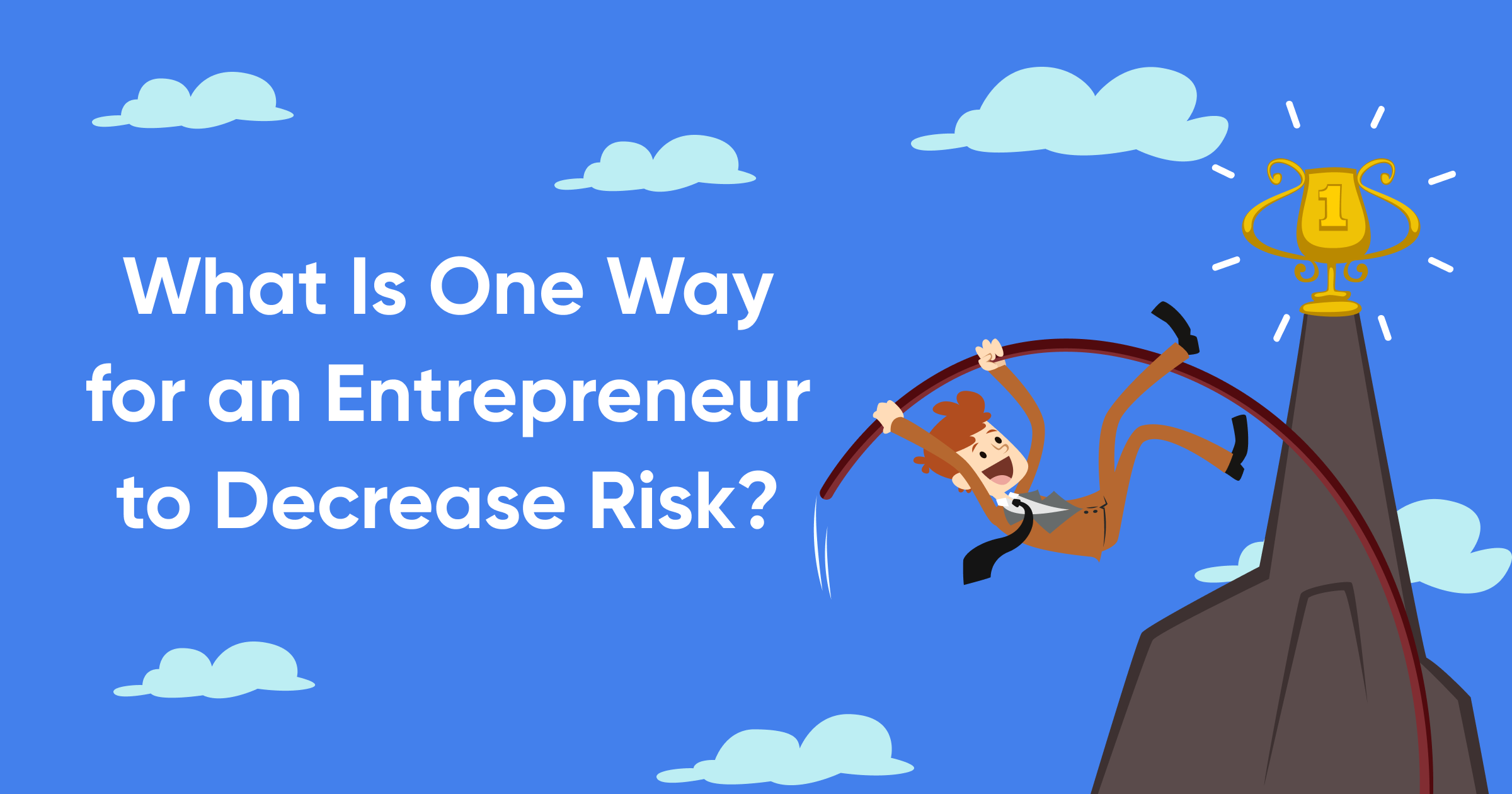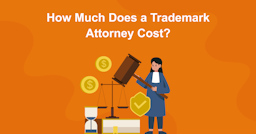Resources
One Way Entrepreneur Decrease Risk
Joshua Julien Brouard
19 April 2024 • 10 min read

founder of Starting a business can be an unnerving venture. People always tell you about the inherent risk of being a business owner and how you need to develop risk tolerance.
But what about decreasing risk? How do you protect what you have and ensure safe continuity?
In this article, I will explore precisely this, with invaluable insights from entrepreneurs who've already been through it all.
Let's get started!
First, I think it's important to address the elephant in the room.
There's a reason that many of us are looking to decrease business risks.
That's because what comes with the entrepreneurial risk territory is a lot of scary statistics.
You've probably heard some of them:
Less than two-thirds of businesses started in 2018, persist today.
Businesses have a 50/50 chance of survival in five years.
Or the worst of all — in the long run, 90% of startups fail.
That's 9/10!
And while risk-taking is in the very nature of successful entrepreneurs:
Nevertheless, conducting a thorough risk analysis is more important than ever.
(And find unique ways to decrease risk.)
Possibilities can be both negative and positive, as experienced business owners will be able to tell you.
It's crucial to create a balanced picture of what you should expect.
(You've probably already assessed what could go right. Otherwise, you'd not be running a new business.)
However, it's equally important to assess what might go wrong and plan accordingly.
Don't risk your business! Protect your brand today with Trademarkia and secure your valuable intellectual property.
The fact of the matter is that risk preparation can help mitigate many of these risks or, at the very least, reduce their effect.
Let's explore 12 ways you can reduce risk in your own business - taking sage advice from experienced business owners.
"A singular, transformative approach to decreasing risk as an entrepreneur is to invest deeply in building a resilient organizational culture.
This means fostering an environment where adaptability is ingrained, failure is not feared but used as a stepping stone for growth, and continuous learning is part of the daily ethos.
At Square and Weebly, we embraced challenges as opportunities for innovation, encouraging the team to experiment boldly and learn rapidly from every outcome.
This culture of resilience and adaptability doesn't just mitigate risk; it transforms potential obstacles into avenues for innovation, ensuring the organization survives and thrives in the face of volatility.
Embedding this mindset into the fabric of your company creates a dynamic capability that acts as a buffer against the uncertainties that come with entrepreneurship.
It's about building a ship that doesn't just weather the storm but learns to sail better because of it." - Darian Shimy, founder of FutureFund.
"Knowledge, knowledge, knowledge.
The best way to mitigate risk is to learn.
Learn all the aspects of your business, industry, and market, especially how they all interrelate.
Not only does this mitigate risk, but entrepreneurs who build their knowledge will also discover new opportunities and insights into building their ventures." - Ed Brzychy, founder of Lead from the Front.
"I would argue that TIME, not MONEY, is the asset we risk most as entrepreneurs. Too many founders have a good idea that never makes it off the ground because they cannot see where their skills lie and how best to invest their time.
That's why delegation, by hiring skilled team members you trust, is fundamental to derisking any business venture.
In 99.9% of cases, you can't create a successful business on your own - attempting to do so is, by it's very nature, risky." - Ultan O'Callagham, founder of Thooja.

"As the visionary director of Just Value Doors Ltd., one approach I've employed to mitigate risk involves deeply integrating customer feedback loops into every product development and business strategy phase.
This process allows us to stay ahead of market trends and directly address consumer needs, significantly reducing the market and product development risks.
By prioritizing customer satisfaction and leveraging feedback, we align our offerings more closely with market demands, ensuring our products and services meet and exceed expectations.
This strategy has been pivotal in our success, positioning Just Value Doors as a customer-centric brand in a competitive industry.
Understanding and responding to customer feedback is a cornerstone of entrepreneurial success and risk management." - Chris Langley, founder of Just Value Doors.

"Business risk is always measured by its costs because, without financial investment, all a failing entrepreneur loses is time.
When I started both businesses, I cut out every fixed cost I could from the very start.
If you don't absolutely need an office space, choose a remote setup. Hire freelancers, so you have labor cost flexibility and the time and energy to focus on real core competencies.
Use cloud-based tools and pay-as-you-go services. Consider dropshipping, partnering with fulfillment centers, and on-demand delivery services.
Use content marketing, social media campaigns, and other relatively inexpensive marketing tactics to start testing the market and proving your business's viability. Barter with other businesses and trade services on the cheap.
Question every single expense until you've released an MVP that allows you to test market viability.
Invest slowly, and always invest in scalable options when they're available to you." - David Ciccarelli, founder of Lake.com.

"Decreasing negative risk in business takes reflection and being strategic before making your financial decisions.
You have to position yourself as the business owner to make good decisions based on logic and not emotion.
If you're B2B that means not taking on bad clients just for the money.
If you're B2C, don't just offer every product under the sun.
You end up spreading yourself too thin and losing more money in the long run." - Natalie Le, founder of Ormi Media.

"Taking risks is crucial for a business to succeed, but not all risks are created equal.
The less you know about your business venture, the riskier it becomes.
However, there is a way for entrepreneurs to decrease their uncertainty: check the competitors.
Figuring out whether your business will thrive or tank can be easier when you know what your rivals are doing wrong (if they are) and vice versa.
This should help you get a clearer picture of the market and make smarter decisions that could minimize risk for your own company.
Look at it this way:
If you're constantly keeping tabs on other businesses like yours, then why wouldn't customers choose yours instead?
Having a competitive analysis strategy is one-way entrepreneurs can decrease risk.
By understanding the strengths and weaknesses of your competitors, you can identify potential opportunities for your business to stand out in the market." - Tariro Goronga, founder of DriveSafe Driving Schools.

"As the founder of a successful metal fabrication business, one way that I've learned to decrease entrepreneurial risks is through robust supply chain management.
It's crucial to ensure continuity in your supply chain to avoid disruptions that could harm your operations.
I achieved this through owning our raw material factories and maintaining diverse sourcing strategies.
This way, if one supplier faces issues, we can continue our operations with minimal disturbance.
This has been key to maintaining our prompt delivery times and reputed product quality at Able Hardware.
It has also empowered us to export approximately 200 containers annually to various countries.
So, diversifying and controlling your supply chain can significantly reduce the risk and ensure a steady flow of business operations." - Jason Woo, founder of Able Hardware, boasting over 20 years of metal fabrication expertise.

"When I took on the CIO role at The John Marshall Law School in 1998, the school's technology needed updating.
Rather than assuming I had all the answers, I spoke with faculty, staff, and leaders.
I wanted to understand how they used technology day-to-day and what improvements could ease their jobs. Getting input from across the school helped ensure we focused on real needs and pain points.
Taking this team approach to heart, I made stakeholder collaboration central when starting TechNoir CIO Solutions.
I spent time understanding clients' unique challenges, and worked with partners to design solutions tailored to their goals.
Getting ongoing feedback and adjusting the course prevented assumptions and blind spots that increase risk.
I continue this collaborative ethos today by regularly tapping into advisory boards on industry changes and new opportunities.
We believe in the power of working together - both within our company and alongside clients - to navigate risks and uncertainties." - James Velco, founder of TechNoir CIO Solutions.

"As the Managing Director of Sphere IT, my team and I have emphasized the importance of anticipatory measures to safeguard against potential IT tragedies before they occur.
This involves rigorous system health checks and continuous monitoring and investing in robust cloud backup solutions to ensure data integrity and availability under any circumstances.
Our commitment to implementing forward-thinking, preventative strategies has minimized downtime for our clients and bolstered their confidence in our ability to protect their most valuable digital assets.
This proactive approach to IT support and disaster recovery planning is an essential cornerstone of risk reduction for any entrepreneur venturing into the digital domain." - Michael Collins, founder of Sphere IT.

"One of the most effective ways to decrease risk for any business owner is to purchase sufficient & comprehensive insurance coverage.
This should include general liability insurance to protect against claims of bodily injury or property damage, professional liability insurance (also known as errors and omissions insurance) to safeguard against claims of negligence or mistakes in any entrepreneur's professional services, and workers' compensation insurance if the owner has employees.
Having comprehensive insurance coverage dramatically reduces financial risks, because many injury and accident lawyers will not pursue remedies above insurance policy amounts.
So these policies should provide true peace of mind (one caveat: any insurance policies should roughly cover the value of owner and business assets, otherwise lawyers will pursue further recovery on behalf of any client with serious injuries)." - Tina Willis, founder of Tina Willis Law.

"I believe that as an entrepreneur, it is crucial to adapt to changing consumer preferences to reduce market risks. I can quickly adjust my products or services to meet changing demands by keeping a close eye on shifting consumer preferences. This approach ensures that my business remains relevant and responsive in changing market dynamics, reducing the risk of losing customers unexpectedly due to sudden changes in what they like or want." - Olivia Tian, founder of Prosostar, Inc. and marketing director of Raise3D.
This article covers precisely how you can ensure the longevity of your business plan, from forming resilient organizational cultures to signing up to insurance policies.
But it doesn't stop here; now it's all about application!
How does the above advice apply to your business? And how can you utilize it for your own success?
Best of luck, entrepreneur!
Looking for more seasoned wisdom? Here are a couple of more articles featuring business owners who know what they're talking about:
An entrepreneur can plan for risks by conducting thorough market research, understanding potential challenges, and preparing contingency plans. This includes financial planning, diversifying products or services, and staying informed about industry trends.
Risk can't be eliminated, but it can be minimized through careful planning, a deep understanding of the market, and financial prudence.
Entrepreneurs can reduce risk and increase opportunities by diversifying their product or service offerings, continuously analyzing market trends and customer needs, and investing in solid relationships with customers, suppliers, and partners. Staying adaptable and learning from both successes and failures are key strategies in this process.
AUTHOR
Joshua J. Brouard has a diverse background. He has studied bachelor of commerce with a major in law, completed SEO and digital marketing certifications, and has years of experience in content marketing. Skilled in a wide range of topics, he's a versatile and knowledgeable writer.
Related Blogs

How Much Does a Trademark Attorney Cost?...
07 May 2024 • 6 min read

Is Filing a Trademark Hard? (+ How to Ma...
03 May 2024 • 7 min read

What Is the Most Common Reason That a Tr...
03 May 2024 • 6 min read

Can You Trademark a Name Without a Busin...
03 May 2024 • 7 min read

Is a Trademark Worth It for a Small Busi...
30 April 2024 • 7 min read